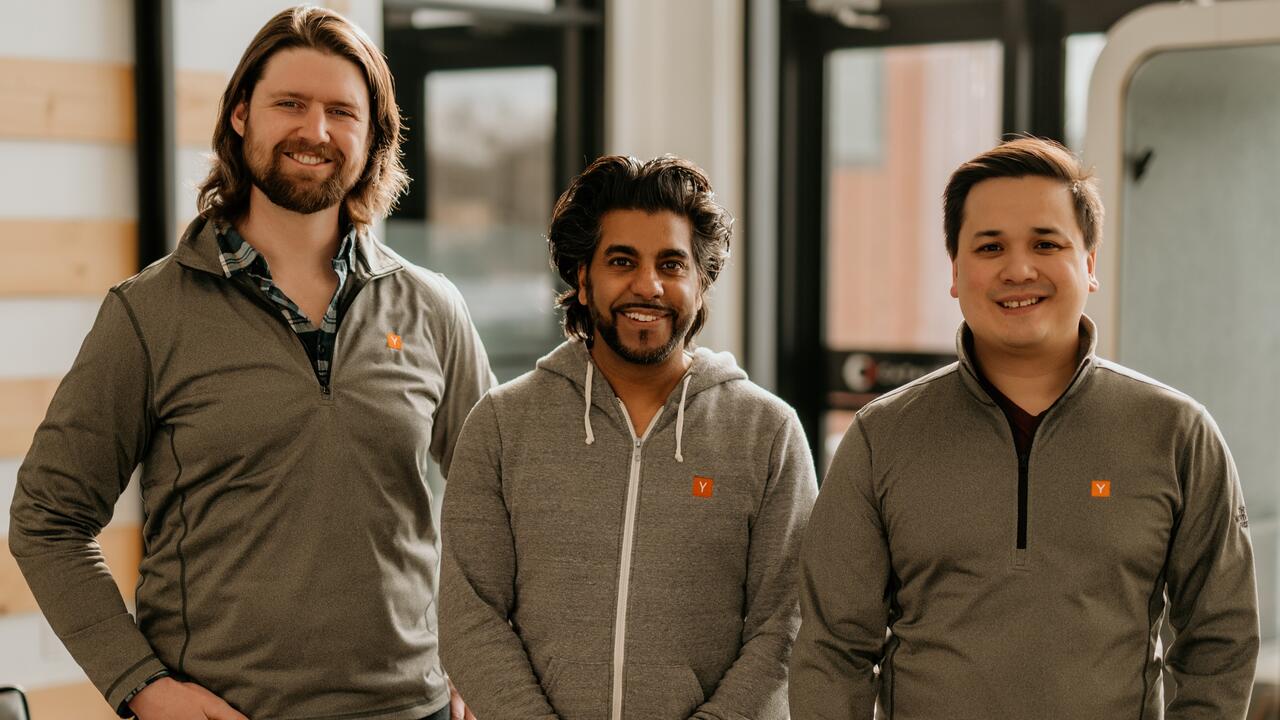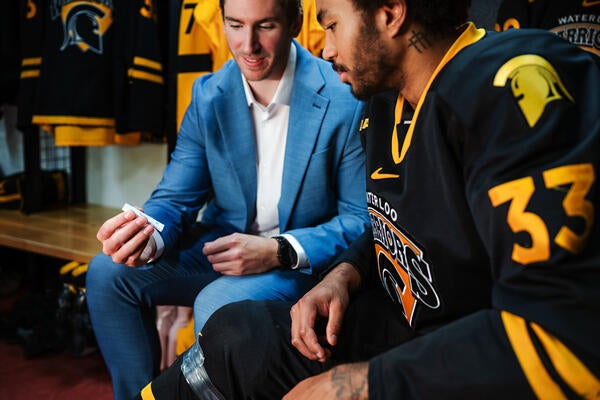
Filling a gap in the marketplace
Engineering alumni offer first surgical coverage for planned procedures

Engineering alumni offer first surgical coverage for planned procedures
By Carol Truemner Faculty of EngineeringPrepped for elective surgery and just minutes away from being wheeled into an operating room, Eric Blondeel suddenly realized he wasn’t insured if the unthinkable were to happen.
Lying on a hospital gurney, Blondeel used the cell phone he still had with him to google where he could purchase some type of last-minute life insurance.
“I wasn’t able to find anything, so I started checking on the chances I could possibly die within the next couple of hours,” says the Waterloo chemical engineering alumnus. “It was an orthopedic surgery but I was going to be under full general anesthetic, which I’d never been before, so I was a bit nervous.”
Blondeel’s 2020 operation at Grand River Hospital in Kitchener was successful but his experience with feeling vulnerable – married with a mortgage he had recently left a job that provided group coverage – led him to co-found Samos Insurance, headquartered in Waterloo.
Launching its website in Ontario this week, Samos Insurance markets itself as offering the first surgical coverage in the world for planned procedures, such as cesarean sections, joint replacements and heart surgeries.
Blondeel says Canada has “a world-class health system and excellent physicians who provide great care” and Samos Insurance’s risk model is based on the overall risk of a given procedure based on a patient’s age, not an individual doctor’s performance.
“Our product is meant to provide peace of mind, as all surgeries have risks associated with them. We aim to strengthen the health care system, not undermine it,” he says.
Filling what he calls a gap in the marketplace, Blondeel says the average price of a digital Samos Insurance policy is about $100 for $100,000 worth of coverage and it takes only minutes to complete the insurance application form with no medical required.
“We want to have something that is accessible and affordable,” he explains. “About one-third of Canadians don’t have any insurance and having something available for them going into elective surgery is important.”
Blondeel (BASc ’09, PhD ’18, chemical engineering) teamed up with Leon Punambolam, a 25-year veteran of the insurance industry locally, and Matt Eggertson (BASc ’10, computer engineering) to create an underwriting model for surgical risk.
Eggertson and Blondeel met while they were undergraduate students and stayed in touch after they graduated. Both have spent time honing their technology skills at Y Combinator, a Silicon Valley startup accelerator.
“Matt has a tremendous background in health-data analytics and was a big part of building the data model that is the foundation of the IP of our company,” says Blondeel.
The Waterloo Engineering alumni say the skills and knowledge they learned as students in the classroom and on co-op work terms have been invaluable in building their new company.
“Both of us learned the value of entrepreneurial thinking and how you can find a problem, build a solution for it, scale that solution and put it in people’s hands,” says Blondeel. “We’re excited to have launched our new company here in Waterloo and see it take off.”
* Banner photo from left: Eric Blondeel, Leon Punambolam and Matt Eggertson

Read more
Upside Robotics secures new funding to accelerate the future of sustainable farming

Read more
Redefining capstone learning by bringing students, faculty and community partners together to tackle real-world challenges

Read more
New medical device removes the guesswork from concussion screening in contact sports using only saliva
The University of Waterloo acknowledges that much of our work takes place on the traditional territory of the Neutral, Anishinaabeg, and Haudenosaunee peoples. Our main campus is situated on the Haldimand Tract, the land granted to the Six Nations that includes six miles on each side of the Grand River. Our active work toward reconciliation takes place across our campuses through research, learning, teaching, and community building, and is co-ordinated within the Office of Indigenous Relations.